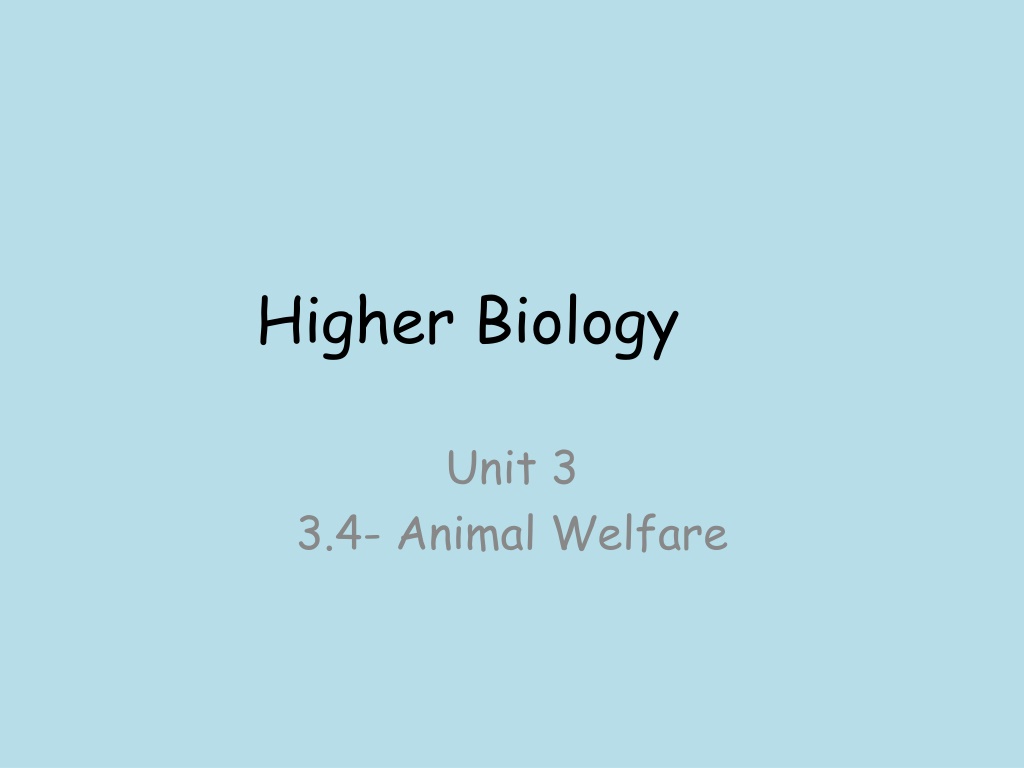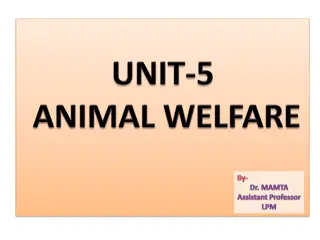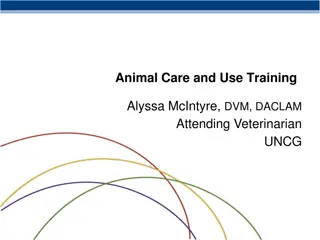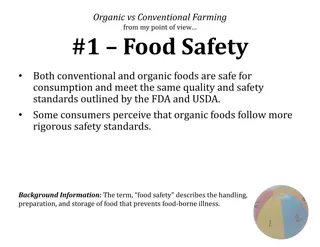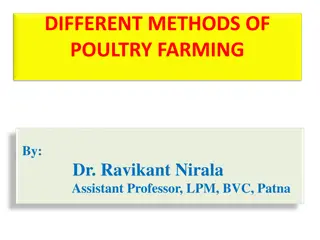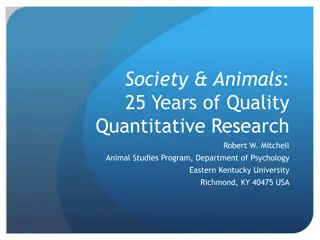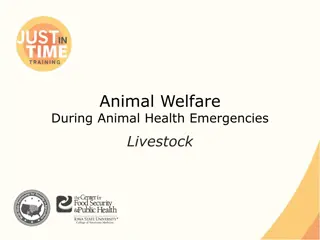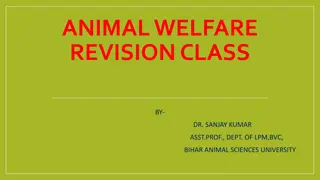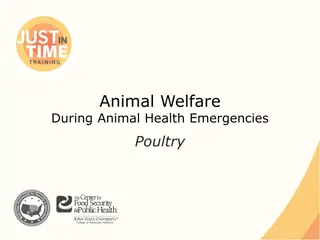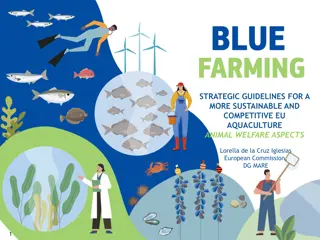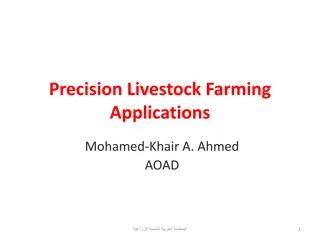Understanding Animal Welfare and Five Freedoms in Farming
Animal welfare encompasses physical and mental wellbeing, allowing animals to express natural behaviors. The Five Freedoms outline essential welfare needs, making sure animals are free from hunger, discomfort, pain, fear, and distress. The Farm Animal Welfare Council ensures these needs are met for domestic animals, emphasizing the cost-benefit of quality welfare practices. Ethics play a crucial role in farming practices, guiding how animals should be treated. Comparisons between battery hens and free-range hens highlight the importance of providing adequate space and opportunities for animals to exhibit natural behaviors.
Download Presentation

Please find below an Image/Link to download the presentation.
The content on the website is provided AS IS for your information and personal use only. It may not be sold, licensed, or shared on other websites without obtaining consent from the author. Download presentation by click this link. If you encounter any issues during the download, it is possible that the publisher has removed the file from their server.
E N D
Presentation Transcript
Higher Biology Unit 3 3.4- Animal Welfare
Wellbeing The wellbeing of domesticated animals was traditionally based upon their physical health This took into account their ability to grow, to reproduces and raise offspring successfully and resist disease. Animal welfare now takes into account the physical wellbeing as well as taking into account an animal s opportunities to express normal, natural behaviours
Farm Animal Welfare Council The FAWC is an independent body set up to review the welfare of farm animals The Animal Welfare Act 2006 states that the needs of an animal must be met These needs are based on the five freedoms for animal welfare
Five Freedoms Freedom : From Hunger and thirst Met by: Providing access to water and a diet that maintains full health Providing an appropriate environment that includes shelter and a rest area Use of preventative measures and where necessary diagnosis and treatment of any problems Providing adequate space, facilities and company of other animals of same kind Providing conditions and treatment that avoid causing mental suffering From Discomfort From Pain, injury and disease To express normal behaviours From fear and distress
Costs and benefits By ensuring that all domestic animals are able to access the five freedoms incurs additional costs initially This initial cost will result in long term benefits Animals who experience a high level of welfare grow better, breed more successfully and generate products of a higher quality
Ethics Ethics refers to the moral values and rules that should govern behaviours It is not ethical to subject animals to a series of negative experiences such as pain and distress simply for cheap eggs and meat
Battery hens are kept in crowded conditions in cages. They have little opportunity to express natural behaviours such as foraging. Compare this to free range hens who have the opportunity to move around freely and exhibit natural behaviours.
Indicators of poor welfare Animals kept in conditions where their welfare is not being adequately met will often express unnatural behaviours
Stereotypy A stereotypy is a behaviour pattern that takes the form of a repetitive movement without an apparent function They are often displayed by animals in confined quarters without opportunities to participate in natural behaviours Examples can include animals pacing back and forth in zoos, and cattle rolling their tongues continuously
Stereotypy It can be argued that the purpose of a stereotypic behaviour is to allow an animal to express frustration or expend energy it would normally use in a manner it is currently unable to
Misdirected behaviour A misdirected behaviour is one where a normal pattern of behaviour is directed inappropriately towards the animal itself, another animal or its surroundings It is a common occurrence in animals kept in confinement or isolation Examples of misdirected behaviour include excessive licking, plucking or chewing of feathers
Enrichment Stereotypic behaviours and misdirected behaviours can be overcome by enriching an animal s environment Zoos and safari parks use enrichment techniques to keep animals stimulated and avoid mental stress
Failure in sexual or parental behaviour Poor welfare can result in the failure of successful reproduction and failure to raise young Some animals may produce young but then reject them and fail to act as effective parents Animals such as mammals and birds need social contact with members of their own species to develop into healthy adults capable of successful reproduction Given these conditions reproductive failure is normally overcome
Activity Levels Hyper aggression and excessive sleeping can be indicators that an animal is suffering as a result of poor welfare
